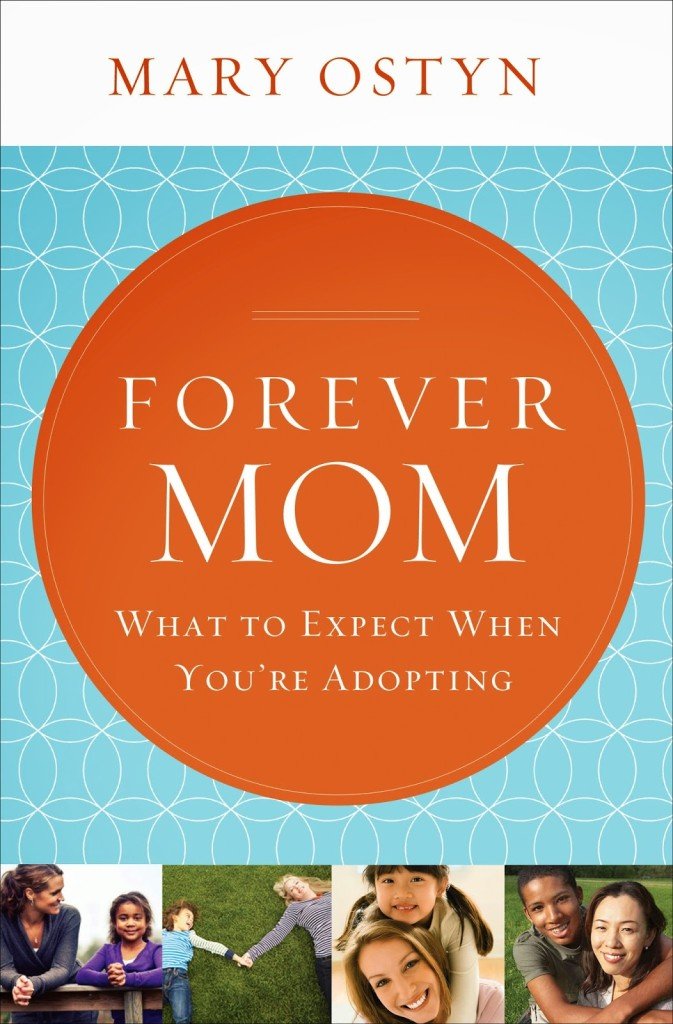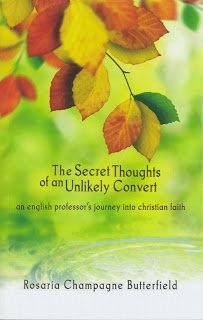
Blog & Resources
Looking for my thoughts on everything from bioethics to movies? You came to the right place. And while you’re here, check out my free downloadable resources.
Sign up to be notified when new posts release.
Checking In
It occurred to me this week that I'd left you, my loyal readers, in the dark on some of the stuff I've written and said of late. So in case any of this interests you, here goes—a few links here:
Every year I teach third graders at The Covenant School in Dallas “How to Read an Icon." I did so again in February. So fun! If you see a guy holding keys, he's probably Peter. If you see a tall skinny cross held by a solemn-looking person, he or she is probably a martyr. If he's wearing green, good chance he's John the Baptist.
A friend created a PDF from one of my blog posts as a visual for my content on seven views on women in ministry leadership within the inerrancy camp (five of them within the Complementarian camp), a topic I presented for Reformed Theological Seminary via Zoom. The post was also referenced in Christianity Today. You can find the free PDF here.
I presented on “Artemis of the Ephesians at the time of the earliest Christians” for a class at Northern Seminary. Lynn Cohick, Northern's provost and my friend, asked me to lead their DMin students on a trip to Italy similar to the one I do for DTS, only this one focused specifically on women in the visual record of the church (oh, and I got a grant to do some photography on the subject!). Slated for early January 2023.
I presented a lecture titled “Cultural backgrounds in interpreting verses about women in public ministry” for Missio Nexus missionaries last month. I did a related blog post on that for bible.org, where I post twice a month on the Engage site.
I invite you to listen in as I talk with Christine Prater on the Holy Shift Podcast: "What's Up with the Upside Down Kingdom?" We talk in a follow-up episode about “The Sermon on the Mount.”
You can also listen as I talk with Jodie Niznik about “The Betrayal of Jesus” on her So Much More podcast. That ran during Holy Week. "Kiss the Son" (Psa 2) in worship or kiss him in betrayal. What a contrast!
I taped an episode on "Feminism and Womanism" for DTS's The Table Podcast. I'll let you now when I have an air date.
Christianity Today's book editor asked me to review Aimee Byrd's latest book, and I really wanted to love it. But I had some concerns about her hermeneutics. You can read my thoughts here: “When Song of Songs Uses a Word, It Doesn’t Always Mean What We Think It Means.”
Do you use the YouVersion Bible app plans for Bible reading? If so, check out the work of two of my students, who published plans they wrote doing independent studies I supervised. One is "Known By Love: A Six-Day Devotional in 1, 2, and 3 John"; the other is an intersection of Negro Spirituals and Lamentations with music included (she rented a studio!) titled "Learning to Lament with the Spirituals: A Six-Day Devotional."
I wrote a blog post about some things that trouble me regarding how we talk about adoption. That was for The Holy Shift: Adoption
And I wrote another for them about comforting those who mourn: Quiet Presence
The Write Now Editing site ran a short post I wrote titled “Read to be a better writer” Why do you read?
April 10-12, I took/met up with some students from across the USA—from Manhattan to LA—and we attended the national conference of the Evangelical Press Association (I'm prez-elect) in Colorado. We also met up with former writing students from Dallas, Grand Rapids, Indianapolis, and Colorado Springs. My former intern Seana Scott won an award for her excellent writing with Peer Magazine; and my student Radha Vyas won EPA's $2,000 Jerry Jenkins scholarship, presented by Mr. Jenkins himself. YAY! So fun to see them thriving and expanding their influence.
My Latte with Luke Bible study is late in launching. But for good reason: AMG is doing (much needed) all new covers for my Coffee Cup Bible Study series. So look for the Luke study in June.
Speaking of that series, if you have read Mocha on the Mount and never posted an Amazon review, I need only two more to make fifty, which would move it up in the search engines. Consider helping me out?
Now that I've entered grades and have graduation behind me, I'm gearing up to take twelve people to Italy with DTS in June, teaching Medieval Art and Spirituality. Please pray that the Spirit would do a great work. I have students coming from all over—from Doha, Qatar, from the Smoky Mountains, from working at Google in LA....I love the diversity of our distance students!
Debora Annino and I have a tentative date for the next writer's workshop in San Miguel de Allende Mexico. We're looking at February 8–12. Maybe you should join us? One of our 2022 attendees just landed her first book contract. YAY!
Thanks for reading. I'd love your prayer support.
An interview with a birth-mom who made an adoption plan: Christine Lindsay
November is Adoption Awareness Month. So I'm featuring here an author who has a book that considers all sides of the adoption triad.
SG:You are a reunited birth-mom—a woman who made an adoption plan for her baby who has met her biological child as an adult. Was the the day you met your birth-daughter a happy one?
Christine: Sadly, no. It was as painful as the day I said goodbye to Sarah as a three-day-old baby in 1979. In fact, more painful. At least on the former day, I was filled with faith that she and I would be reunited one day when she became an adult. For the next twenty years as she grew up as another couple’s child, I prayed for the time when I would see her again. But on that day, Sarah’s mom and dad were extremely upset by my desire to meet the now-adult Sarah. They couldn’t bear the thought of meeting me nor understand why I would want to meet them. In fact her dad was very much against the whole idea of our meeting.This put a lot of pressure on Sarah, and the day we met again, she came across as very distant to me. This broke my heart, taking away all the faith that I had that she and I could develop a close birth-mother/birth-daughter relationship—one different from what she had with her adoptive parents, but special none the less.
SG:So how did you feel about adoption after you met your birth-daughter?
Christine: For the first twenty years after I said goodbye to Sarah, I considered her and her adoptive parents a package deal—something God had put together. I loved them as much as I loved her, and I wanted a relationship with them as much as I wanted a relationship with Sarah. Discovering that they did not feel the same way about me brought back all the emotional pain of the initial decision.As a birth-mom, I was already struggling with the losses of that, and the delicate but subversive ways my psyche had been affected by making an adoption plan for my child—even though I’d made that sacrifice in her best interests. Seeing my grown birth-daughter and all that I had lost, I believe I realized for the first time the full extent of my choice.The emotional pain brought on a clinical depression that lasted two or three years. I began to look at Sarah’s adoption through fractured lenses. All the joy I’d felt about giving my child a better home life than I could have offered her back then dissolved into bitterness. I suddenly felt hood-winked by God, feeling that He had tricked me into giving Sarah up. I thought He obviously gave Sarah to her adoptive parents because He didn’t consider me good enough to raise Sarah. And if I wasn’t good enough to be Sarah’s mother, I must not be good enough for the children I had with my husband.Naturally this wasn’t the truth, but when we are depressed we don’t see things clearly. At that time, I wished I could turn back the clock and keep my baby.Jealousy grew inside me at a frightening rate. There always had been a tiny bit of jealousy that someone else was raising my child, but it grew into a monster. As a Christian I was turned inside out, hating myself for this jealousy, and yet unable to pull myself out of my emotional tailspin.
SG: Do you still feel that way?
Christine: No, thank God. Depression and emotional trauma do not heal overnight, and we often need professional help. I had a great counselor who helped me move on from those destructive emotions and began to search for the real me. So often traumatic experiences stop people from reaching emotional maturity. My husband was also an amazing help, and one day he brought me a new journal and pen, and said, “Here honey, write your story.”Also, through the verse in Isaiah 49:15, 16 I realized that my crazy love for my children (including Sarah) was nothing compared to the immense love God the Father had and has for me. That was the beginning of healing.It took time, but gradually I began to lighten up on Sarah’s adoptive parents and recognize their right to their private life with Sarah. As I filled up on God’s love for me, I was able to love them again the way I first had when Sarah was a baby.
SG:How do you feel about adoption today?
Christine: I beg pregnant women today to consider adoption as an alternative to abortion. It’s a wonderful choice. But if the pregnant woman is able to keep her baby, I wholeheartedly encourage her to do so. I’ll be honest, making an adoption plan for your baby is one of the hardest sacrifices a woman can make. But I have also found that we can turn to God in our greatest need, and He is there with leagues and leagues of comfort and love, and new joys to replace our sorrows. It wasn’t easy for me, but now I can say, that because I truly love Sarah, I cannot imagine her life without her adoptive parents and brothers.
SG:Will your memoir hurt my feelings as a woman who struggled with infertility?
Christine: Since my book braids the stories of not only birth-moms and birth-families, but also that of adoptive moms and dads, I do not believe anyone will be hurt by this book. All the authors in this memoir tell their own stories in their own words, holding nothing back. So, Sarah’s adoptive mom, Anne, tells it like it was as a woman who could not bear children. She also shares openly that having me in Sarah’s life as her birth-mom is still difficult for her. She adds that if she could, she’d rather that I wasn’t in Sarah’s life at all these day, even admitting that this is selfish.I too, share honestly that I was jealous, angry with her, and selfishly thinking only of my own emotions during the years just after I met Sarah as an adult.Sarah, too, shares her journey both as an adoptee and also as a woman hurting over the loss of eight miscarriages. The pain of infertility is well shared in Finding Sarah, Finding Me.Yet while our honesty is brutal at times, it weaves a bright ribbon of hope throughout for those who might be hurting with the issues of infertility and adoption.
SG:How can your book help the various sides in adoption triads?
Christine: Finding Sarah, Finding Me can help:
Women who are pregnant, unmarried and afraid, if they want to know the emotional truth about making an adoption plan for their baby—that while it hurts immensely, there can be joy. It is my prayer, that this will encourage more women to consider adoption instead of abortion.
Infertile people will be encouraged to have their voice recognized.
Adoptive parents will feel affirmed in their mixed emotions regarding the frightening prospect of adoption reunion. This memoir shows various types of reunions—some that went beautifully well and created unique blended families, and others that did not. People are made up of such different emotional stuff. Not all should go down that road.
SG:You're a fiction writer; why write this memoir now?
Christine: My desire to tell my birth-mother story got me started writing in the first place. But the timing wasn’t right after I met Sarah as an adult in 1999. It took seventeen years for the Lord to work on everyone’s heart, to heal old emotional pain, so that the memoir could be published and no one be hurt by it. During those years of healing however, the Lord encourage me to tell my story in Christian fiction, which has won numerous awards.All the spiritual depth of my heartache and depression are in my novels, in the hope of encouraging others. Life is not easy.
Book info: Sometimes it is only through giving up our hearts that we learn to trust the Lord.Adoption. It’s something that touches one in three people today, a word that will conjure different emotions in those people touched by it. A word that might represent the greatest hope…the greatest question…the greatest sacrifice. But most of all, it’s a word that represents God’s immense love for his people.Join birth mother Christine Lindsay as she shares the heartaches, hopes, and epiphanies of her journey to reunion with the daughter she gave up—and to understanding her true identity in Christ along the way.Through her story and glimpses into the lives of other families in the adoption triad, readers see the beauty of our broken families, broken hearts, and broken dreams when we entrust them to our loving God.Read Chapter One of Finding, Sarah Finding Me: Click HERE
Author info:Christine Lindsay is the author of multi-award-winning Christian fiction with complex emotional and psychological truth. Tales of her Irish ancestors who served in the British Cavalry in Colonial India inspired her multi-award-winning series Twilight of the British Raj, Book 1 Shadowed in Silk, Book 2 Captured by Moonlight, and explosive finale Veiled at Midnight.Christine’s Irish wit and use of setting as a character is evident in her contemporary and historical romances Londonderry Dreaming and Sofi’s Bridge.A writer and speaker, Christine, along her husband, lives on the west coast of Canada, and she has just released her non-fiction book Finding Sarah, Finding Me: A Birthmother’s Story.Drop by Christine’s website www.ChristineLindsay.org or follow her on Amazon on Twitter. Subscribe to her quarterly newsletter, and be her friend on Pinterest , Facebook, and Goodreads Purchase links:Amazon (Paperback and Kindle)Barnes and Noble
The Child Catchers: Rescue, Trafficking, and the New Gospel of Adoption: A response
Forever Mom: What to Expect When You're Adopting
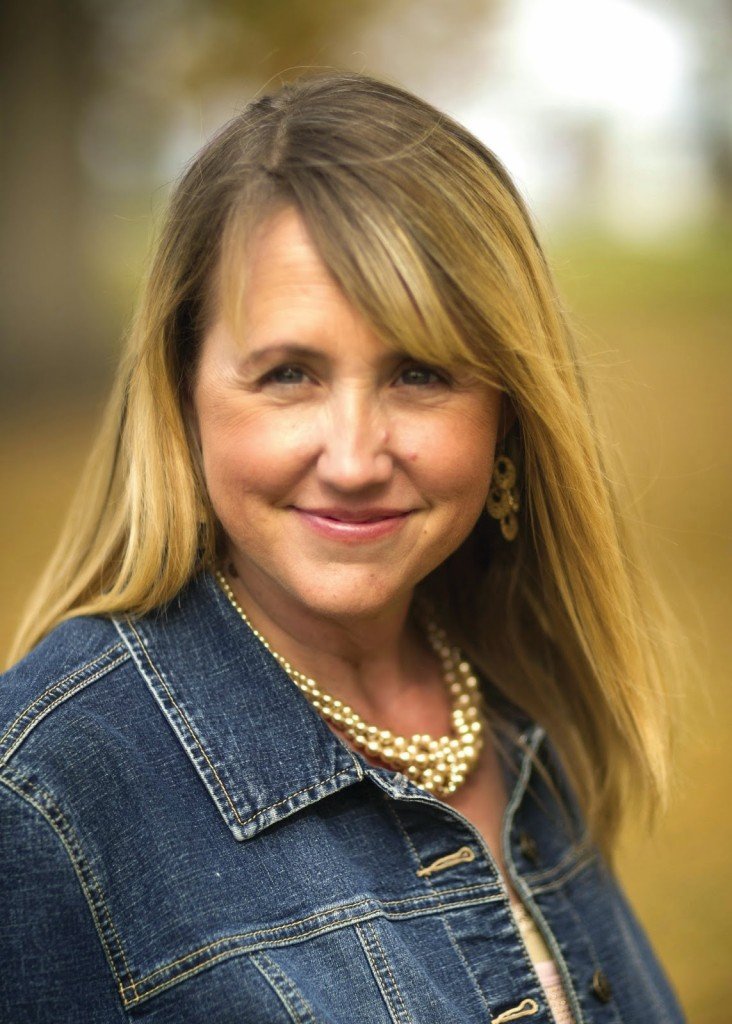 Mary Ostyn is theauthor of ForeverMom: What to Expect When You’re Adopting. She encourages moms throughher books, speaking engagements, and her blog at www.owlhaven.net. She lives with her husband and highschool sweetheart in Nampa, Idaho, where she homeschools the youngest five ofher ten children, including four daughters born in Ethiopia and two sons bornin South Korea.
Mary Ostyn is theauthor of ForeverMom: What to Expect When You’re Adopting. She encourages moms throughher books, speaking engagements, and her blog at www.owlhaven.net. She lives with her husband and highschool sweetheart in Nampa, Idaho, where she homeschools the youngest five ofher ten children, including four daughters born in Ethiopia and two sons bornin South Korea.
It's Adoption Awareness Month
Happy October 1! It's Adoption Awareness Month. So I want to introduce you to some folks working in the world of adoption—Show Hope:
Adoption Grants: Financial grants help provide waiting children with families throughadoption Equipping Families: Conferences are held year round throughout the country, and resourcesare provided to help equip families to bring hope and healing to children
Show Hope Sponsors: Monthly sponsors help provide urgent medical care for children at ShowHope’s Special Care Centers in the Henan province of China, as well as helpprovide waiting children with families through Adoption Aid grantsLife Hope Sponsors: These sponsors annually fund an entire Adoption Aid grant while alsohelping children at the Special Care Centers
Special Care Centers: Care Centers such as Maria’s Big House of Hope inLuoyang, China, provide acute and urgent medical care for orphans with specialneeds. Show Hope has three additional Care Centers located in China’s Henanprovince, giving desperately needed medical care for 300 children when at fullcapacityCorrective Surgeries: Life-giving surgeries provide hope and healing toorphans by addressing critical needs
Thousands of generous people across the country have raisedhundreds of thousands of dollars tochange their world for orphans. Today more than ever, advocates are making animpact on the orphan crisis by raising awareness and funds through projectslike donating their birthday, hosting a bake sale, or sharing with theirchurches. To find out more, visit www.showhope.org/advocates.
Secret Thoughts of an Unlikely Convert
"I was a broken mess. I did not want to lose everything that I loved. But the voice of God sang a sanguine love song in the rubble of my world."
Whilein her thirties, Dr. Rosaria Champagne held a tenured position at SyracuseUniversity, owned two houses with her lesbian partner, modeled hospitality tostudents, and rescued abandoned and abused dogs. An English professor withexpertise in Feminist Studies and Gender Studies, she tried to live ethically and enjoyed classroomsbursting with students eager to hear her speak. But then she encounteredsomething that turned her world upside down: Christianity. And the experiencefelt anything like “a wonderful plan.” In her words, it felt more like “a trainwreck.”
Hear Me on KCBI: Infertility, Pregnancy Loss, and Adoption
Tune in to KCBI 90.9 FM tonight at 6:30 or 10:30 PM Central for a continuation of last week's conversation lwith Dr. David Henderson about infertility, pregnancy loss, and adoption.
You can also listen to the broadcasts about a week after they air by going to the Criswell website at www.forchristandculture.com . Click on the “on air” tab and scroll down to the date of the programs, May 23 and 30 .
Listen: Radio Show on Infertility
Tune in to KCBI 90.9 FM tonight at 6:30 or 10:30 PM Central (and next Thursday at the same time) to hear me talking with Dr. David Henderson about infertility, pregnancy loss, and adoption.
You can also listen to the broadcasts about a week after they air by going to the Criswell website at www.forchristandculture.com . Click on the “on air” tab and scroll down to the dates of the programs, May 23 and 30.
Religion: Pure or Plain?
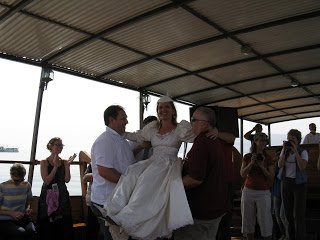 Rebeca Knowles still fit into her wedding gown seventeen years after her wedding. I know this because I had known her less than two days when I danced as part of her marriage-vow-renewal celebration on a boat in the middle of the Sea—the Sea of Galilee. And she wore that dress.
Rebeca Knowles still fit into her wedding gown seventeen years after her wedding. I know this because I had known her less than two days when I danced as part of her marriage-vow-renewal celebration on a boat in the middle of the Sea—the Sea of Galilee. And she wore that dress.
Brian and Rebeca, part of our group of journalists touring Israel at the invitation of the Ministry of Tourism, told us about how their marriage stunk until Jesus Christ transformed it. They wanted to go public with their renewed commitment to each other. So we rocked the boat dancing with them.
For the next week we ate fish by the sea, prayed at the wailing wall, and sang at the empty tomb together. And on bus rides between stops, Rebeca and I found our hearts connected—she knew our “son,” Carlos; we both write and speak; and we're both adoptive parents. It’s in t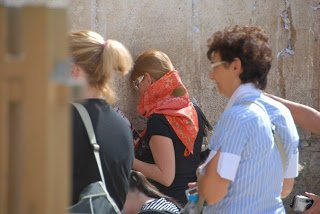 his last capacity that I want to introduce you to her.
his last capacity that I want to introduce you to her.
Rebeca’s somewhat of a rock star in the Spanish-speaking world. Her popular reflections “One Minute with God” are broadcast on radio and television throughout Latin America. With Brian she is cofounder and director of the ministry Reaching Out Network, Inc. (RONI), an organization that now supports families and helps establish strong marriages. Together they produce the radio and TV show “Healthy Marriages with Brian and Rebeca Knowles.”
Recently Rebeca told a reporter with Trinity Broadcasting Network (TBN) Russia, “Life for an orphan is not better once they are adopted. Life is better once they know that in God they can find their true Father. That’s why God did not give the church the mandate to adopt, but to ‘visit,’ ‘take care,’ [and] ‘take charge’ of the orphan, and in some cases this involves adopting.”
She recalls the first time she entered an orphanage. “I was in Brazil, and my heart was filled with  the Father’s love for those orphans. From the two orphanages in Russia where I adopted my children, hundreds [of children] were left who will never be adopted. Statistics say that 80 percent of the ones who are not adopted will end up in a Russian jail once they leave the orphanage at the age of eighteen. Eighty percent of them will not live to see the age of twenty-one. They will die due to crime and drugs.”
the Father’s love for those orphans. From the two orphanages in Russia where I adopted my children, hundreds [of children] were left who will never be adopted. Statistics say that 80 percent of the ones who are not adopted will end up in a Russian jail once they leave the orphanage at the age of eighteen. Eighty percent of them will not live to see the age of twenty-one. They will die due to crime and drugs.”
Rebeca determined to do what she could to change that stat. “When my husband and I met with the TBN Russian president and his wife, we knew instantly that this would be the flag project for ‘Pure Religion,’ to show ‘The Smile of a Child’ in each Russian orphanage,” she said.
TBN Russia has successfully placed this children’s channel in 300 Russian orphanages, but 700 remain. The Knowles’s ministry, “Pure Religion,” wants to reach every orphanage so children “can know that God loves them, and in Him you can find a Father.”
“We are not preaching a new religion,” Rebeca insists. She says they are emphasizing what has been required of God’s people all along. “In James 1:27 God gives us clear instructions that involve God’s justice and the holy life of his children. This verse says that ‘Pure religion’ and being faultless in the eyes of God the Father consists of taking care of the distress of the orphans and the widows and to keep oneself from being polluted by the world.”
This weekend Rebeca and Brian launch this aspect of their ministry into the Spanish-speaking world. And they can use help in four ways.
• They ask for your prayers.
• They need your encouragement. Considering cheering them on by sending a note of encouragement to info@reachingoutnet.org
• They need financial help to make possible the broadcasts (see web site info below).
• They need volunteers--people who will use their vacation time to go overseas and help by doing anything from office work to leading workshops.
For more information, go to www.religionpura.com (Spanish) or www.SayYesToPureReligion.com (English).
I love this video!
A friend of my brother-in-law, Mark, produced this life-affirming video. Love it!
Council for Life from Jonathan Culp on Vimeo.
On Singles Having Planned, High-Tech Babies
Recently I received an email about a Christian unmarried woman considering the use of donor sperm to conceive a baby. Another woman who heard about it suggested a solution: the church should hunt down a man for her to marry.
Um, no.
Here is my response:
This advice, though well-intentioned, is misguided because it suggests a misunderstanding of the purpose of both marriage and the Church. The main purpose of marriage is not procreation. It’s oneness. Certainly procreation was part of God’s beautiful design for marriage, but it’s not the main thing. The same is true of the Church—its purpose is certainly not to serve as a find-a-mate service. (Believe me, that has been tried.)
We need to look deeper for our response.
Proverbs 30:16 lays out some natural laws, and among four things it says are “never satisfied” is a “barren womb.” God has created most women with a deep longing to marry and bear children. And this unsatisfied longing can break their hearts. For most women, even those with great careers, the job of “mommy” is their number-one aspiration. The inability to accomplish that desire could see a correspondence in a man being unemployed and unable to work for the rest of his life, even if he is healthy. One can learn to trust God to ease the pain, but the devastation is still a daily, lifelong hurt. Ever since Genesis 3, life on this planet has been filled with brokenness, and the longing described by the woman desiring to have a baby is one of many evidences of holy longings. The best response is for those around her to grieve with her.
She does have several possible ways of meeting the desire to parent. The first is to adopt a child who needs a mother. But everyone involved needs to understand something: This probably will not satisfy her longing to bear a child. Experiencing a child in one’s womb and giving birth—these are rites of womanhood to most women. So even if this woman does adopt, she needs to be allowed the grief evoked by not knowing what it’s like to look into the eyes of her own biological child. This is not being “stuck on genetics.” This is a longing that falls in line with the natural order of things—how God made us to work. The Church’s appropriate response is to weep with those who weep.
Single parenting is very, very hard, but better for a parentless child to have at least one parent than none. Another possibility is for this woman to change careers so she is intimately involved in children’s lives. Add to that volunteering to teach kids in church or as part of Big Sister program. But again, everyone must understand this will not satisfy the longing to have a child. It is only a healthy channel for investing in the next generation. Every kid on the planet could benefit from receiving more love. The most important ethical consideration, in my mind, for the woman seeking donor insemination—and the ethical reason why I would counsel against it—is the injustice to her potential child.
The Creator’s beautiful ideal is for every child to be conceived by two people, a mother and father, who are married to and love each other. In the mystery of male/female interaction, the child learns something about the image of God embodied in a father and the image of God embodied in a mother. The woman in the scenario described is setting out intentionally to bring a child into an un-ideal situation. And instead she needs to think about how it would feel to be that child.
If the woman desiring to be a mom proceeds regardless of this concern, she needs to know that the child also has a right to know who his or her parents are. Kids born to donor-insemination arrangements where the donor remains anonymous are now growing up and expressing their outrage. Many of them feel their parents considered only their own pain and not their children’s needs. So if this Christ-following woman feels she must proceed, she needs to choose a donor bank where the donor is identified. Her child needs to know her genetic heritage, and not just facts on paper. He or she will want to meet and interact with the sperm donor. And that is a healthy desire that should be met...which opens a big, huge, squirming can of worms.
As mentioned, I do not think a solution is for the church to hunt down a man. In 1 Corinthians 7 we read Paul’s epistle to church in a sex-crazed culture like our own, and in it he encourages his readers to consider staying single for sake of the Kingdom. The church in past ages has first overemphasized staying single and then swung the pendulum by overemphasizing married/family life. That’s where we are today. Instead, the church needs to help this woman find contentment in her broken-hearted state of singleness without children. (And not by offering trite sayings, platitudes, and just-trust-God criticism.) She will live with a holy longing all her life unless God brings her the right man.
Though she does not have a husband, the family of Christ is the ideal place for her to find that she does have fathers, mothers, brothers, sisters, and yes—children. And as a reminder, God is still in the miracle-working business. So her spiritual family should also offer their fervent prayers for and with her that sooner than later she will find a man with whom to share an enduring, God-honoring love.



